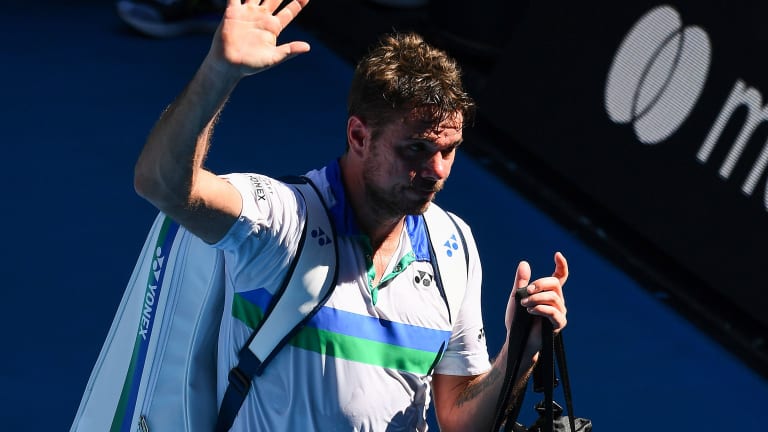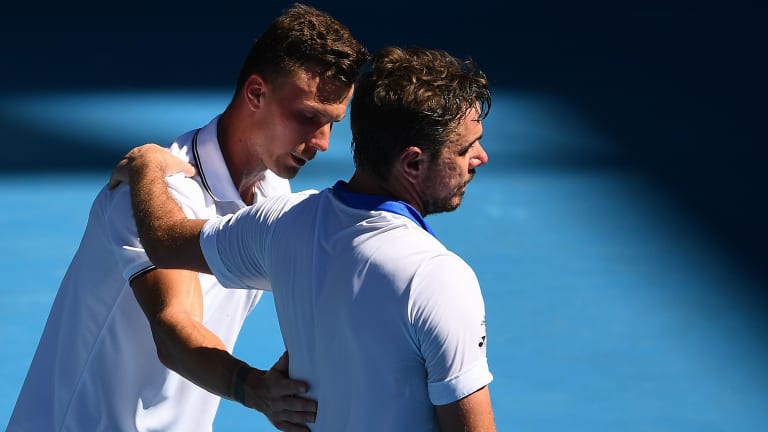Australian Open
Requiem for Wawrinka: even in marathon defeat, Stan is still the Man
By Feb 10, 2021Australian Open
Roger Federer to headline “Battle of the World No.1s” at Australian Open’s inaugural Opening Ceremony
By Dec 11, 2025Australian Open
Australia at Last: Reflections on a first trip to the AO
By Jan 29, 2025Australian Open
Alexander Zverev must elevate his game when it most counts—and keep it there
By Jan 27, 2025Australian Open
Jannik Sinner draws Novak Djokovic comparisons from Alexander Zverev after Australian Open final
By Jan 26, 2025Australian Open
Alexander Zverev left to say "I'm just not good enough" as Jannik Sinner retains Australian Open title
By Jan 26, 2025Australian Open
Jannik Sinner is now 3-0 in Grand Slam finals after winning second Australian Open title
By Jan 26, 2025Australian Open
Taylor Townsend and Katerina Siniakova win second women's doubles major together at the Australian Open
By Jan 26, 2025Australian Open
Madison Keys wins her first Grand Slam title at Australian Open by caring a little bit less
By Jan 25, 2025Australian Open
Henry Patten, Harri Heliovaara shrug off contentious first set to win Australian Open doubles title
By Jan 25, 2025Requiem for Wawrinka: even in marathon defeat, Stan is still the Man
Giving his all inside John Cain Arena versus 55th-ranked Marton Fucsovics, the 35-year-old Swiss lost a match by the remarkable score of 7-5, 6-1, 4-6, 2-6, 7-6 (9).
Published Feb 10, 2021
Advertising

Requiem for Wawrinka: even in marathon defeat, Stan is still the Man
© AFP via Getty Images
Advertising
Requiem for Wawrinka: even in marathon defeat, Stan is still the Man
Advertising

Requiem for Wawrinka: even in marathon defeat, Stan is still the Man
© AFP via Getty Images
Advertising

Requiem for Wawrinka: even in marathon defeat, Stan is still the Man